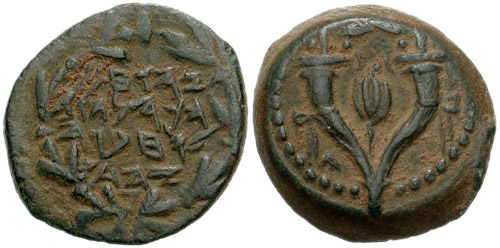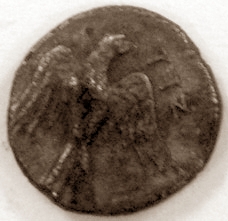Jew (word) on:
[Wikipedia]
[Google]
[Amazon]
The English term ''Jew'' originates in the

 The Septuagint (reputedly a product of
The Septuagint (reputedly a product of
 In modern English and other contemporary languages, the term "Israelite" was used to refer to contemporary Jews as well as to Jews of antiquity until the mid-20th-century. Since the foundation of the
In modern English and other contemporary languages, the term "Israelite" was used to refer to contemporary Jews as well as to Jews of antiquity until the mid-20th-century. Since the foundation of the
Biblical Hebrew
Biblical Hebrew (, or , ), also called Classical Hebrew, is an archaic form of the Hebrew language, a language in the Canaanite branch of Semitic languages spoken by the Israelites in the area known as the Land of Israel, roughly west of ...
word ''Yehudi'', meaning "from the Kingdom of Judah". It passed into Greek as '' Ioudaios'' and Latin as ''Iudaeus'', which evolved into the Old French ''giu'' after the letter "d" was dropped. A variety of related forms are found in early English from about the year 1000, including ''Iudea'', ''Gyu'', ''Giu'', ''Iuu'', ''Iuw'', and ''Iew'', which eventually developed into the modern word.
Etymology

''Yehudi'' in the Hebrew Bible
According to the Book of Genesis, Judah (, ''Yehudah'') was the name of the fourth son of the patriarch Jacob. During the Exodus, the name was given to the Tribe of Judah, descended from the patriarch Judah. After the conquest and settlement of the land of Canaan, Judah also referred to the territory allocated to the tribe. After the splitting of theunited Kingdom of Israel
The United Monarchy () in the Hebrew Bible refers to Israel and Judah under the reigns of Saul, David, and Solomon. It is traditionally dated to have lasted between and . According to the biblical account, on the succession of Solomon's son Re ...
, the name was used for the southern kingdom of Judah. The kingdom now encompassed the tribes of Judah, Benjamin
Benjamin ( he, ''Bīnyāmīn''; "Son of (the) right") blue letter bible: https://www.blueletterbible.org/lexicon/h3225/kjv/wlc/0-1/ H3225 - yāmîn - Strong's Hebrew Lexicon (kjv) was the last of the two sons of Jacob and Rachel (Jacob's thir ...
and Simeon, along with some of the cities of the Levites. With the destruction of the northern kingdom of Israel (Samaria)
The Kingdom of Israel (), or the Kingdom of Samaria, was an Israelite kingdom in the Southern Levant during the Iron Age. The kingdom controlled the areas of Samaria, Galilee and parts of Transjordan. Its capital, for the most part, was Sama ...
, the kingdom of Judah became the sole Jewish state and the term ''y'hudi'' () was applied to all Israelites.
The term ''Yehudi'' () occurs 74 times in the Masoretic text of the Hebrew Bible. The plural, ''Yehudim'' () first appears in where it refers to a defeat for the Yehudi army or nation, and in , where it refers to the language of the Yehudim (). has the earliest singular usage of the word ''Yehudi''. In , the name "Yehudi" () has a generic aspect, in this case referring to a man from the tribe of Benjamin:
:"There was a man a ''Yehudi'' (Jewish man) in Shushan the capital, whose name was Mordecai the son of Jair the son of Shimei the son of Kish, a Benjamite; who had been exiled from Jerusalem with the exile that was exiled with Jeconiah, king of Judah, which Nebuchadnezzar
Nebuchadnezzar II (Babylonian cuneiform: ''Nabû-kudurri-uṣur'', meaning "Nabu, watch over my heir"; Biblical Hebrew: ''Nəḇūḵaḏneʾṣṣar''), also spelled Nebuchadrezzar II, was the second king of the Neo-Babylonian Empire, ruling ...
, king of Babylon
''Bābili(m)''
* sux, 𒆍𒀭𒊏𒆠
* arc, 𐡁𐡁𐡋 ''Bāḇel''
* syc, ܒܒܠ ''Bāḇel''
* grc-gre, Βαβυλών ''Babylṓn''
* he, בָּבֶל ''Bāvel''
* peo, 𐎲𐎠𐎲𐎡𐎽𐎢 ''Bābiru''
* elx, 𒀸𒁀𒉿𒇷 ''Babi ...
, had exiled."
The name appears in the Bible as a verb in which states:
:"Many of the people of the land ''became Yehudim'' (in the generic sense) (, ''mityahadim'') because the fear of the Yehudim fell on them."
In some places in the Talmud the word ''Israel(ite)'' refers to somebody who is Jewish but does not necessarily practice Judaism as a religion: "An Israel(ite) even though he has sinned is still an Israel(ite)" (Tractate ''Sanhedrin'' 44a). More commonly the Talmud uses the term ''Bnei Yisrael'', i.e. "Children of Israel", ("Israel" being the name of the third patriarch Jacob, father of the sons that would form the twelve tribes of Israel, which he was given and took after wrestling with an angel, see Genesis
Genesis may refer to:
Bible
* Book of Genesis, the first book of the biblical scriptures of both Judaism and Christianity, describing the creation of the Earth and of mankind
* Genesis creation narrative, the first several chapters of the Book o ...
32:28-29) to refer to Jews. According to the Talmud then, there is no distinction between "religious Jews" and "secular Jews."
In modern Hebrew, the same word is still used to mean both Jews and Judeans ("of Judea"). In Arabic the terms are ''yahūdī'' (sg.), ''al-yahūd'' (pl.), and بَنُو اِسرَائِيل ''banū isrāʼīl''. The Aramaic term is '.
Development in European languages
 The Septuagint (reputedly a product of
The Septuagint (reputedly a product of Hellenistic Jewish
Hellenistic Judaism was a form of Judaism in classical antiquity that combined Jewish religious tradition with elements of Greek culture. Until the early Muslim conquests of the eastern Mediterranean, the main centers of Hellenistic Judaism we ...
scholarship) and other Greek documents translated , ''Yehudi'' and the Aramaic ' using the Koine Greek term '' Ioudaios'' ( grc-gre, Ἰουδαῖος; pl. '' Ioudaioi''), which had lost the 'h' sound. The Latin term, following the Greek version, is ''Iudaeus'', and from these sources the term passed to other European languages. The Old French ''giu'', earlier ''juieu'', had elided (dropped) the letter "d" from the Latin ''Iudaeus''. The Middle English word ''Jew'' derives from Old English
Old English (, ), or Anglo-Saxon, is the earliest recorded form of the English language, spoken in England and southern and eastern Scotland in the early Middle Ages. It was brought to Great Britain by Anglo-Saxon settlement of Britain, Anglo ...
where the word is attested as early as 1000 in various forms, such as ''Iudeas'', ''Gyu'', ''Giu'', ''Iuu'', ''Iuw'', ''Iew''. The Old English name is derived from Old French. The modern French
French (french: français(e), link=no) may refer to:
* Something of, from, or related to France
** French language, which originated in France, and its various dialects and accents
** French people, a nation and ethnic group identified with Franc ...
term is "Juif/Juive" (m/f).
Most European languages have retained the letter "d" in the word for "Jew". Etymological equivalents are in use in other languages, e.g. ''Jude'' in German, ''judeu'' in Portuguese, ''jøde'' in Danish and Norwegian, ''judío'' in Spanish, ''jood'' in Dutch. In some languages, derivations of the word "Hebrew" are also in use to describe a Jew, e.g., ''Ebreo'' in Italian and Spanish, ''Ebri / Ebrani'' ( fa, عبری/عبرانی) in Persian and Еврей ''Yevrey'' in Russian. (See ''List of Jewish ethnonyms
An ethnonym is the name applied to a given ethnic group. Ethnonyms can be divided into two categories: exonyms (where the name of the ethnic group has been created by another group of people) and autonyms or endonyms (self-designation; where the ...
'' for a full overview.) The German word ''Jude'' () is cognate
In historical linguistics, cognates or lexical cognates are sets of words in different languages that have been inherited in direct descent from an etymology, etymological ancestor in a proto-language, common parent language. Because language c ...
with the Yiddish word for "Jew", '' Yid''.
Modern use
 In modern English and other contemporary languages, the term "Israelite" was used to refer to contemporary Jews as well as to Jews of antiquity until the mid-20th-century. Since the foundation of the
In modern English and other contemporary languages, the term "Israelite" was used to refer to contemporary Jews as well as to Jews of antiquity until the mid-20th-century. Since the foundation of the State of Israel
Israel (; he, יִשְׂרָאֵל, ; ar, إِسْرَائِيل, ), officially the State of Israel ( he, מְדִינַת יִשְׂרָאֵל, label=none, translit=Medīnat Yīsrāʾēl; ), is a country in Western Asia. It is situated ...
, it has become less common to use "Israelite" of Jews in general. Instead, citizens of the state of Israel, whether Jewish or not, are called "Israeli", while "Jew" is used as an ethno-religious designation.
Perception of offensiveness
The word ''Jew'' has been used often enough in a disparaging manner byantisemites
Antisemitism (also spelled anti-semitism or anti-Semitism) is hostility to, prejudice towards, or discrimination against Jews. A person who holds such positions is called an antisemite. Antisemitism is considered to be a form of racism.
Antis ...
that in the late 19th and early 20th centuries it was frequently avoided altogether, and the term ''Hebrew'' was substituted instead (e.g. Young Men's Hebrew Association). The German counterpart ''Jude'' was extensively used during the Nazi period as a part of its anti-semitic campaign (eventually leading to genocide). The word has become more often used in a neutral fashion, as it underwent a process known as reappropriation. Even today some people are wary of its use, and prefer to use "Jewish". Indeed, when used as an adjective (e.g. "Jew lawyer") or verb (e.g. "to jew someone"), the term ''Jew'' is purely pejorative. According to '' The American Heritage Dictionary of the English Language'', Fourth Edition (2000):
It is widely recognized that the attributive use of the noun ''Jew'', in phrases such as ''Jew lawyer'' or ''Jew ethics'', is bothvulgar Vulgar is a Latin word meaning "common" or "pertaining to ordinary people." Language * Vulgar or common language, the vernacular speech of a region or a people * Language use characterised by vulgarity, see Vulgarism and Other uses *A vul ...and highly offensive. In such contexts ''Jewish'' is the only acceptable possibility. Some people, however, have become so wary of this construction that they have extended the stigma to any use of ''Jew'' as a noun, a practice that carries risks of its own. In a sentence such as ''There are now several Jews on the council'', which is unobjectionable, the substitution of a circumlocution like ''Jewish people'' or ''persons of Jewish background'' may in itself cause offense for seeming to imply that ''Jew'' has a negative connotation when used as a noun.
References
{{Jews and Judaism Etymologies Ethnonyms Definitions English words Antisemitic slurs Judaism terminology